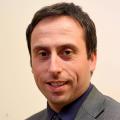THE number of paramedics attacked by patients remains unacceptably high, ambulance chiefs have revealed.
Latest figures from the North East Ambulance Service (NEAS) show that the number of incidents per month are no lower than they were last January.
However, there has been a slight reduction since an alarming peak in the summer, when NEAS launched a campaign to raise awareness of the issue.
NEAS has revealed there were 43 incidents in November, and 46 in December (up to December 20), compared to January (44) and February (47).
Despite a reduction on the summer peak, May (50), June (55), July (71), August (65), September (60), and October (54), the figures remain far too high.
NEAS has revealed that throughout 2020, there were 54 incidents of physical assault leading to members of staff sustaining injury, and 159 incidents of physical assault where no injury was sustained.
There were 130 incidents of intimidating behaviour towards staff, and one case of racial abuse.
NEAS said there were 35 occasions where sexual abuse or sexual disruptive behaviour was used towards staff, and 186 cases of verbal abuse or verbal aggression.
The ambulance service’s deputy chief executive Paul Liversidge said: “It is unacceptable for anyone to assault or abuse any of our crews out on the road or call handlers and we do not tolerate this kind of behaviour.
“As a healthcare provider, we are here to help people in their time of need.
“Our staff do not expect to be faced with such actions when responding to patients and any injury, harm or abuse they do face hinders patient treatment and could mean that they aren’t then available to help anyone else in an emergency.”
“We will work closely with the police to pursue criminal charges where appropriate and we hope that tougher sentencing in court continues.
“Please respect our staff, let them do their job to get you or others the treatment needed.”
Back in August, the Courant spoke to Adrian Langford, a paramedic from Hexham, who revealed how two assaults on him by patients had left him requiring six months of counselling and a separate course of physiotherapy.
During eight years working for NEAS, Adrian said he had been attacked twice by drunken patients while treating them, and admitted that the second attack led him to seek counselling.
Adrian said that one occasion he had been bit by a drunk patient, while in a separate incident, a man tried to punch him while doing his job of caring for the man's welfare.







Comments: Our rules
We want our comments to be a lively and valuable part of our community - a place where readers can debate and engage with the most important local issues. The ability to comment on our stories is a privilege, not a right, however, and that privilege may be withdrawn if it is abused or misused.
Please report any comments that break our rules.
Read the rules here